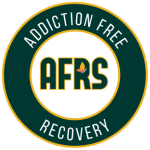Substance abuse is a significant challenge that cuts across millions of people, families, and communities in this world. Whether it is alcohol, prescription medications, or illegal drugs, the implications of substance abuse can be cataclysmic; they stretch far beyond the individual user.
Legal and employment effects often are not discussed concerning substance abuse, but these factors are a reality that may surface as a consequence. Understanding the legal and employment impact of substance abuse is important for those who deal with it and for employers or HR professionals trying to navigate this complex landscape.
Key Points
- Understanding Consequences: Substance abuse involvement leads to severe legal and employment-related consequences, such as getting charged with crimes and losing a job. Individuals and employers must be aware of the consequences of such involvement.
- Seek Their Support: Whether it is the abused substance or subordinates who may be indulging in the same, seeking help and making an environment supporting always can help recover and rehabilitate a person.
- Legal Protections Exist: People in recovery have legal protections under the Americans with Disabilities Act that can help them by providing adequate accommodations and support in getting and holding employment during their recovery journey.
There’s always much to consider in terms of legal implications around issues of substance abuse at work, the consequences it may bring to the workplace, and some simple ways both workers and employers can navigate through such problems. If you are concerned about substance-related issues as an employee or looking to maintain a productive, supportive workplace, check here for valuable insights and resources to empower your decisions.
Understanding Substance Abuse
Harmful or hazardous use of psychoactive substances, such as alcohol and illicit drugs, is termed substance abuse. This can cause impairment in oneself or stress for this individual, which may impair them significantly in many areas, including health, relationships, and average daily functioning.
Statistics on Substance Abuse
According to the National Institute of Drug Abuse (NIDA), 19.7 million adults in the U.S. had a substance use disorder in 2017. Among such people are illegal drug users and alcohol users. The effects of drug abuse are momentous, not only on the users but to their family, friends, and community at large.
Types of Substances Commonly Abused
Substance abuse involves the use of a range of substances, such as:
- Alcohol. Although alcohol is legal, it is perhaps one of the most commonly abused drugs. Heavy drinking leads to addiction and many diseases of the liver, besides social problems.
- Prescription Drugs. Medications like opioids, benzodiazepines, and stimulants can be very addictive if used improperly. The CDC notes that the opioid epidemic has caused a drastic surge in addiction and overdose deaths.
- Illegal Drugs. These comprise substances such as cocaine, heroin, and methamphetamine, which affect the brain and body severely, causing extreme damage to health and leading to criminal charges.
The Stigma of Substance Abuse
Increasingly, substance abuse as a medical condition is recognized; however, stigma remains a big challenge. In general, many individuals who have been diagnosed with substance abuse disorders are stigmatized and judged, and some level of their response is affected by that stigma. Therefore, understanding and addressing such stigma is where the role will play in building supportive recovery environments.
Legal Implications of Substance Misuse
Substance abuse can lead to a range of legal consequences, which can have lasting effects on an individual’s life.
Criminal Charges
Exposure to the possibility of criminal charges is one of the most direct legal consequences of drug abuse.
Common Crime Charges
- Possession. Individuals caught with illegal substances can face criminal charges, which vary in severity depending on the substance and quantity.
- Possible Punishment and Imprisonment. Penalties for substance-related offenses can range from fines and community service to lengthy prison sentences. Additionally, a criminal record can impact employment opportunities, housing, and social relationships, creating a vicious cycle that is challenging to escape.
Legal Consequence of Driving under the Influence DUI
Another of the serious legal issues related to substance abuse is driving under the influence, for instance.
Serious Consequences of a DUI Charge
Such a charge in DUI can have serious consequences, including:
- License Suspension. All states impose mandatory license suspensions for DUI offenses, hamper the individual from working and fulfilling his routine tasks.
- Fines and court costs. A conviction for DUI could attract a severe level of fines, which includes costs associated with the court and fees from any mandatory programs.
- Jail. In more severe cases, jail terms are also expected in situations of repeat offenders or accidents that lead to injury and death.
- Family Law and Substance Abuse. Substance abuse can quite considerably impact family law matters, especially custody and divorce cases.
Impact on Custody Decisions
As for determining custody, the courts also consider the child’s well-being. Substance abuse can adversely influence custody decisions, leading to:
- Limited Custody. Courts may limit custody or visitation rights for parents struggling with addiction.
- Substance Abuse Assessments. Courts often mandate an assessment and treatment, depending on one’s recovery of custody.
Employment Consequences of Drug Abuse
The impacts of drug abuse are not only to the individual but will spill over to the workplace, including the employer, and even among colleagues.
Workplace policy on substance abuse Employees and employers alike must understand workplace policies regarding substance abuse.
Clear Substance Abuse Policies Importance
Therefore, employers must provide a substance abuse-free work environment and make it more productive. Their policies may include:
- Drug Testing Procedures. Specify when and how drug testing will occur and any consequences of a positive test.
- Supportive Resources. Offer information on employee assistance programs (EAPs), and any other resources for those suffering from substance use disorders.

Disciplinary Action and Termination
Substance use can result in disciplinary action, including termination.
Possible Disciplinary Actions
Employees who have violated substance abuse policies can receive verbal or written warnings, and the severity of the situation may vary:
- Suspension. In some cases, one is suspended by the employer for sometimes awaiting treatment or even during the investigation.
- Termination. Repeated or serious infractions will result in termination, which can have long-term effects on an individual’s career and personal life.
Legal Rights of Workers
The employee may also be covered by provisions of the law, such as the Americans with Disabilities Act (ADA), which may make it compulsory for the employer to provide reasonable accommodations to an employee in recovery. Such accommodations would allow him to seek rehabilitation and return to work.
The Role of Employee Assistance Programs EAPs
Employee assistance programs are essential in support for employees experiencing substance abuse.
Its benefits include:
- Confidential Support: Employee Assistance Programs offer confidential counseling and support, which provides employees with a safe space to discuss their problems.
- Access to Resources: These programs frequently connect employees to available treatments, support groups, and educational resources.
Challenge on Labor Law and Employment
For those going through the effects of substance abuse, cases involving legal and employment authorities may look quite burdensome. But, with concrete steps, individuals may seek help and support for these challenges.
Seeking Legal Counsel
The first step towards legal representation for these cases is seeking legal counsel.
Importance of Hiring a Lawyer
- Expert Advice: A professional lawyer will most likely help provide insight into the legal jurisprudence and clients’ rights and options.
- Court Representation: The lawyer may take representation before a court of law and plea-bargain for a better deal rather than imprisonment.
Communicating to Employers
Communicating with the employers about substance abuse is daunting but necessary for the employees.
How to Discuss Substance Abuse with Employers
- Be honest with employers. being transparent about the nature of substance abuse and seeking help will help them understand it.
- Accommodations. Employees should discuss potential accommodations, including but not limited to flexible schedules, to attend treatment.
Building a Support Network
Building support is a key component in recovery from a substance abuse life.
Importance of Support Networks
- Emotional support. Friends, family, or support groups can encourage and challenge people to meet their recovery goals.
- Resource sharing. It is another helpful support network that helps an addict find treatment options and resources to make the recovery process smoother.
Recovery and Prevention
Recovery and prevention would be the first step, which would include legal and employment consequences of substance abuse.
Treatment Choices
Various treatment treatments are given to abuse-suffering individuals in the present world.
Individualized Treatment Programs
- Inpatient versus outpatient programs: A treatment program can be an inpatient rehabilitation program providing a structured environment or an outpatient program where patients continue their daily activities as they receive support.
- Therapy and Counseling: Individual and group therapy can treat the root issues that drive substance abuse and provide powerful positive coping tools.
Relapse Prevention
- Preventing relapse is part of the recovery process.
- To develop coping skills, learn to control or cope with triggers and stressors.
- Stay Engaged in Support Groups. Regular attendance can provide accountability and ongoing encouragement.
Final Thoughts
Education on the possible consequences enables us to prepare victims with adequate knowledge to make rational decisions while fostering a more supportive work environment.
If you or someone you know has a problem with substance abuse, then it’s time to seek help. Honestly, recovery is quite possible, and help exists.
If you have experiences or questions about the legal and employment consequences of substance use, feel free to share your comments below and please call out when help is needed. There are immense resources and groups of support that will help lead you to recovery. Remember, the fight is not yours alone.

FAQs
- What are the legal consequences of substance abuse?
Depending on the violation, such legal consequences may include criminal charges, fines, loss of licenses, and, in extreme cases, jail time.
- How Does Substance Abuse Affect Work?
Substance abuse may lead to disciplinary action, job termination, and legal problems that may disqualify the individual from employment.
- Can I get fired for substance use if I am in recovery?
Thus, they would have to abide by the Americans with Disabilities Act and perhaps even make reasonable accommodations for the recovering employee.
- In case of a legal issue resulting from substance abuse, what should be done?
Seek professional legal advice to be informed about your rights, options, and representation in court if necessary.
- How can I prevent relapse after recovery?
They develop coping skills and continue working with support groups, maintaining good support networks that guide them through the challenges.






















